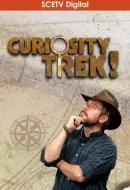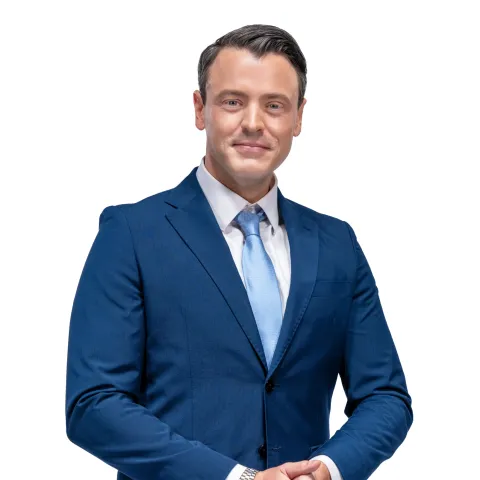A sit down with Attorney General Alan Wilson and Lead Prosecutor Creighton Water to discuss what is being called the trial of the century and the Murdaugh conviction. And as we celebrate Women’s History month, we talk with Barbara Rackes of SC Women in Leadership about the need for more women in public office.
READ THE FULL TRANSCRIPT
Gavin Jackson: Welcome to This Week in South Carolina. I'm Gavin Jackson. As we celebrate Women's History Month this March, we sit down with Barbara Rackes of South Carolina Women In Leadership to discuss the importance of women running for public office, and why so few do but first after what is being called a trial of the century, a conversation with Attorney General Alan Wilson and Chief prosecutor Creighton Waters, whose office after a six week trial, got a two life sentence conviction of disgraced attorney Alex Murdaugh for the killing of his wife and son, Attorney General Alan Wilson and Lead prosecutor Creighton Waters. Thanks for joining us.
Attorney General Alan Wilson, South Carolina: It's great to be with you. Thank you,
Gavin Jackson: Attorney General Wilson, I want to start with you, which is some of the big news that we saw come out this week, before we get into the Murdaugh trial. This is a case that's tangential to that trial, which is the 2015 death of Stephen Smith. Originally, his death was ruled a hit run after his body was found suspiciously on a two lane Hampton county road back in 2015. But this case was reopened in the wake of the June 2021. Murdaugh murders. What can you tell us about this Stephen Smith case? Sled has obviously reopened this case and saying it's a homicide. What can you tell us about this?
Attorney General Alan Wilson, South Carolina: Well, as you already know, we can't make comments on ongoing investigation. So, at this point, we're happy to talk about the Murdaugh trial and the case involving the double homicide, but we can't make any of this regarding potential ongoing investigations at this time.
Gavin Jackson: Okay, you can't talk about any evidence that you guys saw that maybe prompted all this to go down.
Attorney General Alan Wilson, South Carolina: So sorry, it's ongoing. So we obviously have to preserve the integrity of the process. and so we can't make comments at this time regarding anything that people are talking about out there.
Gavin Jackson: Gotcha. Understand that. So, General Wilson, let's just talk about the Murdaugh trial. Like you said, that six week double murder trial, which you and lead prosecutor Craig waters, who you're with right there, y'all lead that case, you attended nearly the entire trial yourself also led some questioning. Looking back, I want to get both of y'all to weigh in on this. Just tell us what were some key moments for you that really solidified the guilt of Alex Murdaugh and that double murder?
Attorney General Alan Wilson, South Carolina: Well, first, I want to give full credit to create an entire team of prosecutors and investigators and support staff. Great, we'll probably do the same thing in just a second. But I think the key moment for me was probably the introduction of the Kendall video coupled with Craig's cross examination of Alex Murdaugh. and you know, Alex Murdaugh being the critical piece of evidence himself and his testimony, I think, ultimately sealed spate. But that coupled with his mounting cascade of lies that he was confronted with, I think that ultimately hung.
Gavin Jackson: How are you Creighton? What...you were in that courtroom most six weeks, obviously building this case? What stood out to you kind of contrasting that with what we just heard from Attorney General Wilson?
Creighton Waters: Well, I would agree with that, and again, I have to credit the whole team as well, as a team effort, the only way we were going to survive bringing a case like this to trial so quickly, defensively, of course, speedy trial, and maybe to their surprise, we gave them one. and so there was a lot of evidence that we had to go through. But obviously, the camera video is just huge, you know, having Alex at the murder scene with the two victims just moments before they got it and of course, lying about it. That's that's obviously very devastating. That's not the only evidence case. and again, you know, just wasn't amazing effort from the entire team here and the drink girls office, but also our partners at SLED, and all the law enforcement agencies working on the case and really, I think, I was most proud of the process itself, how it played out on the national and international stage. The process in South Carolina acquitted itself well, and, you know, obviously, a huge part of that was the human element at the helm. I'll even credit the defense. It was professionally broadcast.
Gavin Jackson: So, Creighton, kind of elaborate for me there on that video, that the video that showed that Murdaugh was there at the scene of the crime at the time. Why was that just so important? and what and how did you guys get that video? Did you know it existed the entire time? Or was that maybe something that came later in the game.
Creighton Waters: It came later in the case and again, can't get around? and I think I've said this having Alex at the scene of the murders with the victims just moments before they died and lying about it, but that's a video I've postponed, law enforcement was able to get into until April of 2022. We have developed a lot of evidence in the case and obviously there was a huge white collar investigation going on, but really the allegations that are going to the heart of the system. But ultimately, sometimes, you know, the simplest explanation, you know, explanations are the ones you look for a law enforcement was able to use Paul's birthday to get into his phone and once we had that kennel video, you know, we all heard his voice on there. You still have to explore that. Prior to that there was a young man who said he thought he heard Alex on the phone at that, during that relevant time period. But that's, that's sometimes where circumstantial evidence or direct evidence, like your cell phones more powerful than a witness statement because Alex said, Oh, we must be mistaken. and, you know, he wasn't. You know, he didn't hear me but jurists often hear Alex on that.
Gavin Jackson: And then Attorney General Wilson told me about the financial aspect of this too, and how critical was to have that introduced into the case?
Attorney General Alan Wilson, South Carolina: Really, again, you know, we got this case, and I guess in August, really started rolling in September, right after the roadside shooting that everyone got to hear about. Initially, the investigation went straight to the - Creighton did a great job with his focus on the grand jury, did a great job of uncovering all of his financial misdeeds, a number of people he was obviously defrauding is members of his own family, his law partners, clients, people that he'd known for many, many years, and we were able to uncover, you know, I think, I believe it was around 17 indictments involving 99 charges, if I remember correctly, but that really kind of started to create a framing or context for what led to the ultimate, fateful night on June 7 2021. This is a guy who was running out of runway, this is a guy who was becoming desperate. This is a person who we believed was obviously his whole life was built on the foundation of his family legacy his family name and that was about to all go away that ultimately led to him going to the drastic measures that he did when he burned his wife and son. So I attribute a lot of the work that was done in the financial case, which really built the foundation for the murder case.
Gavin Jackson: Creighton, when we talked about Alex actually taking the stand. Just tell me how big of a flaw that was you think in determining the guilty or especially when you hear from maybe some of the jurors who talked about that moment? What did you make of him taking the stand?
Creighton Waters: Well, I mean, that's the absolute right of the defendant to do so. It's not the decision of his attorneys. It's the decision of the defendant. But we were always confident that he was going to take the stand, and that's because we knew as we developed this investigation, and to be clear, I'd never talked to Alex Murdaugh in life until that cross examination, but we were always confident that he was going to take the stand, because we believe that he felt that his ability to speak to those jurors as much as he had done as a trial attorney in that very circuit, with that family influence and family legacy for so long, that he would be able to look them in the eye and convince them and we thought that if he did that, that we could then get up and show the jury that he could just effortlessly defend the lie and try and look them in the eye and try to lie to them as well.
Gavin Jackson: Can you be a little candid with me too. and just tell me about some of these, maybe some parts of your case where you felt were maybe a gamble, or you're really holding out hope that it was going to be able to be executed to be part of your defense? Were there some moments there where you maybe didn't think you completely had it in the bag, or were you pretty confident the entire time?
Creighton Waters: Sure, you know, as a trial lawyer, we tend to be fairly superstitious. and one thing we try not to do, though, is focus too much on the end results. You know, we use a lot of sports analogies around here. and if you start thinking about hoisting the trophy, and you're still in the fourth quarter, then it can get away from you. So as lawyers we don't make the evidence, we just gather the evidence and present it to the jury and do so in front of you, in a compelling and convincing fashion, that's what we did here. And you know, along the way, there's going to be ups and downs, but we've always tried to preach that steady hand to the team. and that's what we kept doing. Try not to get too high at any point for not to get to low.
Attorney General Alan Wilson, South Carolina: I basically told them, there are going to be days where you have a fumble or turnover, There are going to be times when we get a major, we score a touchdown, to borrow the metaphor, and don't get focused or hung up on your highs and your lows, because there's going to be momentum changes. There's four quarters to play, you play to the last second of the last quarter, and you get the you do your job, you stay focused in the present moment, and don't get, don't get hung up on mistakes that you make, or even the other side makes,
Creighton Waters: When you're listening to it, it may sound compelling, but we know we're going to be able to get up here and David Fernandez got up and did a great cross and just showed the lack of credibility to that. Same thing with Alex. Obviously, he was very compelling and very riveting during direct, but we're confident because we know we're going to get to be able to get up on cross and put that back in perspective for the jury. So, there are certainly moments during the trial where you see that momentum shift but you're always confident you're going to be able to shift it back the other way, when you're able to add context to the jury to put it into perspective.
Gavin Jackson: Creighton, when we look at this six week, double murder trial, I mean, it was huge. Everyone called it the trial of the century. Everyone was just really just paying attention nonstop it seemed like. You were leading that prosecution with the Attorney General's Office of course. Tell me how you would describe it. Now looking back since several weeks since that case, since that verdict came back, and you know what you've reflected on at this point, how you look back at this?
Creighton Waters: Aside from wrong, not ever forgetting what this case is about, and obviously, it's the murders of Maggie and Paul, you know, all of this media attention, it just, it's just part of the society we live in and you know, what they say it's the case of the century. There'll be another case of the century in a couple of years. I'm sure, if not shorter, but the one thing that I think that I felt much relief about, aside from successfully getting justice for Maggie and Paul was just, you know, how proud I was of this team. and that was really the thing that struck me the most when I heard Miss Becky Hill said weren't guilty was I'm so glad that you know, whether it's a state Grand Jury team, Attorney General's office or SLED or all the law enforcement agencies that didn't put up did all this work, not dealing with the result, we thought was the right result. That really was the greatest relief. Gavin Jackson: General Wilson picking up on that too. Can you just tell me what you thought about this guilty verdict that came out really quick? What does that say to you about justice in South Carolina?
Attorney General Alan Wilson, South Carolina: Well, just to sum it up, I think before the trial began, a lot of people really questioned whether or not justice could be had because of the status of the individual with the trial. and I think the biggest compliment. I received was the feedback I got from people that I know that I'm related to the Low country who live and work and travel in that community, and the number of times that they call me to say, hey people have just had their faith renewed in the system, that knew no one is above the law. When so many people would even question if that was a true statement, and that is, the thing that doesn't take away from me, is that this office, the Attorney General's office, and our supporting law enforcement agencies, were able to send a message to the people of South Carolina and the world that no one is above the law.
Gavin Jackson: We have about two minutes left here, I want to ask you about the other 99 financial crimes facing Alex Murdaugh at this point, how does his admission of fraud on the stand affect those going forward, General Wilson?
Attorney General Alan Wilson, South Carolina: Well, I mean, first off, you know, those are still pending cases, Alex Murdaugh is regardless of what happened in the trial, he has the presumption of innocence until he seeks to waive that or, you know, plead guilty or go to trial on it.
Gavin Jackson: What's the appeals process for this case, as well. What's the status of that? How's that look going forward, General Wilson?
Attorney General Alan Wilson, South Carolina: Well, I mean, our office is obviously going to defend the process. I mean, we defend all the post conviction relief and all the appeals in South Carolina, and we're going to do that nothing's really different for this case, We're going to defend it as far as it goes.
Gavin Jackson: Gotcha. A lot happening in the first half this year, especially with a lot of criminal justice issues going on there, especially with the Alex Murdaugh case that we saw play out over six weeks in South Carolina, with lead prosecutor Creighton Waters, and Attorney General Alan Wilson. Thank you all for joining us.
Attorney General Alan Wilson, South Carolina: Thank you.
Creighton Waters: Enjoyed it. Thank you.
Gavin Jackson: Joining me now to discuss the need for more women in leadership positions in our state is Barbara Rackes. She's an entrepreneur and she's one of the co founders at SC Women In Leadership, where she's also a board member. Barbara, thanks for joining us today.
Barbara Rackes: Thank you very much, and thank you for the invitation.
Gavin Jackson: So Barbara, I already told you I kind of a big broad question for you just asking you right now. Just tell us a little bit about the nonprofit, what you're trying to accomplish, and just what the need is to have more women in leadership and political roles in South Carolina.
Barbara Rackes: Wow. You want that all in just a 30 second capsule. So South Carolina Women in Leadership was actually formed in 2015. But did not go live until 2018. There was a great deal of acrimony, divisiveness, between people and parties, and so on and so forth after a particular presidential election, and we felt it was not the right time to build an organization based on inclusiveness. So we held off until 2018. Launched. Our mission is to increase race and gender diversity from the ground level up and the influence of women. Now, I want to make sure it's clear this is not a broad brushstroke, that all women are good. All men are bad. I have, whom I refer to sometimes it's an old white man for a husband. and he is a wonderful guy and over 30 years, he's come a long way. So, he's not a feminist, but you know, he's a little closer than he was. So, historically, women have been at the bottom of the ladder we are accustomed to, from the southeastern all of our upbringing, we're accustomed to being you know, the rib, we're the the pants of the family, and he tells us how to spend money and who to vote for. Well, that's gone, but it does take a long time to change decades of the information that we were fed by our moms and our grand moms and our dads and our grandkids. So encouraging women to run for office takes a lot of energy. We encourage women to run for both elected and appointed office. That's an important note because there aren't nearly as many elected seats in the state, as there are appointed there are more than 5000 state boards and commissions with seats, and I can't even enumerate how many there are on cities and counties. It's a great place for a woman to start, get her confidence built up, learn how to serve Robert's Rules and orders, rules of order, and all of those kinds of things, and then consider whether that level of leadership can be moved up.
Gavin Jackson: Yeah, and when you talk about leadership too and women, these political roles, I was just looking at some data, and I guess. South Carolina is ranked 47th, when it comes to women in the statehouse and the legislature. Here in South Carolina, we have five out of 46 Senate members are women, and 20 out of 124 House members are women. In a state where we have 51% women in our population, so and that's down from 17% in the previous years. So what are the challenges here? I mean, I know there were some reelection situations, and you know, you did see a woman flip one seat with Heather Bauer coming into office. But what are the challenges? What's the need to have these women represent fellow women in the statehouse?
Barbara Rackes: Well, women come from a very different perspective. You know, we have been the - we do it all. and we're the homemakers, we - what was that old story, we bring home the bacon, we cook it up in the pan, we manage the logistics, you know, I challenge you to find many men who say, Oh, if there's a pickup that's needed at school, I'm happy to be the one who does it today. It's always like, Barbara, can you handle that? I know that. So, we have two full time jobs if we work outside the home, and that is expected of us. So talking to a woman about taking on a third full time job is really challenging. It's being done. You mentioned the five women in the Senate, who remarkably work together, three Republicans, two Ds, they get things done, which is something that women do when they are in office, they cross party lines in a way that most men choose not to. I had an interview not long ago with Annie McDaniel from Fairfield County. and I said, Well, you know, somebody talks down to you or disbelieves, you on the House floor, what do you do? She said, Well, I meet him afterwards in the cloakroom, and I tell him what he really needs to know, and that's kind of what women have to do. We can't get the bully pulpit as often, but we can do something about it. So there are really three reasons that women don't run for office. One is one that I noted that we lack a support system, we don't have, you know, very few women work for large law firms who are going to support them, or, you know, car dealerships or insurance companies that are going to pay their way while they are there. So they have to earn a living and $10,000 a year, whatever they earn in the legislature is not an income they help do much in the family coffers, but the second thing is that they aren't asked to run. So if you Gavin said, Oh, I'm in the House, but I decided I'm going to retire this year, you might say, Hey, Bob, what do you think about running, you've been really active in the party or whatever in the local area, and Bob runs. You don't ask Barbara or Mary or Susan, because the logic in what you have been trained,is that it's the next guy down the line, and the women are still sticking the stamps and mailing the envelopes. So when a woman decides to run, she is at least as likely to win as her male counterpart. It's just convincing them. and one of the things that we do at will, is we help give them the resources to be able to do that, and I don't mean we send them big checks, because we are looking for big checks to run the organization.
Gavin Jackson: and you're nonpartisan too, of course.
Barbara Rackes: We're what we call multi-partisan, and that's important because we work with Republicans and Democrats and independents and those who run like a mayor might on a non partisan ticket, and so we have to have a board that's comprised of kind of 50/50 or 30-30-30.
Gavin Jackson: Barbara, we have about 90 seconds left here, a minute left, actually, and I just want to talk about, some successful women. Like we've seen, former Governor Nikki Haley, She worked her way up too. She saw Hillary Clinton speak, She got motivated to run. Now she's running for president. She's a legitimate candidate there, but she said May the best woman win. All kidding aside, this is not about identity politics, and she doesn't believe in a glass ceiling. So, there's trying to walk that fine line there, too and then you look at what's going on in the state Supreme Court, We've lost Justice K Hearn not be replaced by a woman. So we're going to be the one State Supreme Court in the country without a female justice on the high courts.
Barbara Rackes: You did your research.
Gavin Jackson: I've been watching it. watching along. So Barbara, just kind of tell us about, you know, what you see when those factors come into play. But then also this big debate around diversity, equity and inclusion initiatives, that have now been kind of scapegoated as woke-ism and folks being worried about what that means and saying that it's not your parents diversity training now and that, you know, I wonder if that has a chilling effect, when you look at the advancements that we've seen for women in politics, and then now saying, diversity, equity inclusion are worrisome. How do you mesh all that together?
Barbara Rackes: First, let me tell you, I don't like labels. I, whether it's glass ceiling, or DEI, or CRT, or, you know, banning Huck Finn from the library. I just don't believe that, that. One of the things that I really like about Nikki Haley is not only is she smart, but she recognizes that it's time for a new generation of leadership. and that is one of the things that we talk a lot about a lot. There, the current governor of Maryland - Westmore, is in that same kind of position, possibly, right, you know, not where Nikki Haley is, but as the Democratic party starts looking for, what their next generation of leadership would be, he might be an asset there. So I really don't believe in glass ceilings, I believe that there are barriers that have been put in place by generations or at least decades of people who have led in a particular way. Younger women have had few role models, particularly in South Carolina. and so you have states like Nevada, where the legislature is more than 50% female. The state of South Carolina where it's 14% in the lost five female black legislators net gain of one in 2022. So, we need more role models, and we need them to look at those that came before and find opportunities to change that leadership model in a very positive way, and W.I.L. has lots of tools that can help them do that we can help them identify which seats are most vulnerable. So you know, you don't want to go up against he's deceased. So I'll say a Hugh Leatherman, if you're a relatively new candidate, but you want to go where you know, there's opportunities, so. That's one of the things we're building on.
Gavin Jackson: That's Barbara Rackes. She's an entrepreneur and she's also a board member of the South Carolina Women's Leadership Network. Barbara, thanks so much.
Barbara Rackes: Thank you very much for having me.
Gavin Jackson: To stay up to date throughout the week, check out the South Carolina Lede. It's a podcast I host on Tuesdays and Saturdays that you can find on South Carolina public radio.org or wherever you find podcasts for South Carolina ETV, I'm Gavin Jackson. Be well, South Carolina.






